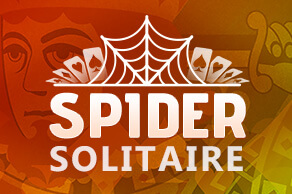
French Prime Minister Manuel Valls speaks at the National Assembly in Paris on April 13 as French lawmakers debated a new law on intelligence gathering. (Francois Guillot/AFP via Getty Images)
If American whistleblower Edward Snowden were French, he would have had a good chance of remaining a free man — despite having leaked thousands of classified intelligence documents.
Whereas both Democratic and Republican U.S. lawmakers have repeatedly emphasized that Snowden and other similar whistleblowers should face punishment, French members of parliament took the opposite stance Thursday. The French National Assembly created an amendment that will legalize the leak of information by intelligence employees if they want to expose an abuse of power by their own authorities.
"The Snowden case has demonstrated the need to create conditions so that agents can denounce abuses by the intelligence services," Jean-Jacques Urvoas, the amendment's author, was quoted as saying by French radio station France Inter.
According to Urvoas, the amendment is supposed to provide "legal protection to an agent of the intelligence services who would denounce illegal intelligence gathering or abusive supervision."
To prevent the uncontrolled leaking of sensitive information, the French amendment could create a new authority to examine leaked documents. Instead of having to persecute the whistleblower, officials would be empowered to investigate abuses of power of the French state -- but only if a governmental commission has agreed to declassify the sensitive documents. If intelligence officers follow this procedure, they may not "be punished or subjected to discrimination," according to the amendment. Whistleblowers who avoid the new authority and send their information directly to the media would still commit an illegal act.
The French government, as well as the conservative UMP party, argued against the amendment. One conservative member of parliament called it "a risk to the stability of the intelligence services." Defense Minister Jean-Yves Le Drian said that respect for hierarchies was crucial to the functioning of intelligence services. By allowing future whistleblowers to legally avoid adhering to this hierarchy, France's national security could be seriously threatened, according to French newspaper Ouest France.
 French soldiers patrol near the Eiffel Tower in Paris as part of the "Vigipirate" security plan after a shooting at the Paris offices of Charlie Hebdo in January. (Gonzalo Fuentes/Reuters)
French soldiers patrol near the Eiffel Tower in Paris as part of the "Vigipirate" security plan after a shooting at the Paris offices of Charlie Hebdo in January. (Gonzalo Fuentes/Reuters) France has recently taken efforts to step up its surveillance amid an increasing fear of terror attacks on French soil. The plots that targeted the satirical magazine Charlie Hebdo and a Jewish supermarket in January have alarmed the country's politicians. A recently passed intelligence bill has been criticized for allowing the French government to collect data from millions of ordinary citizens — an accusation that has also been leveled against the NSA in the United States.
It's a sign that, despite terrorism concerns, a majority of French parliamentarians remain skeptical of U.S. spying habits exposed by Snowden. The ex-NSA contractor had revealed surveillance programs that some claim violate privacy rights.
This post has been updated to specify that the amendment was created by France's National Assembly.








